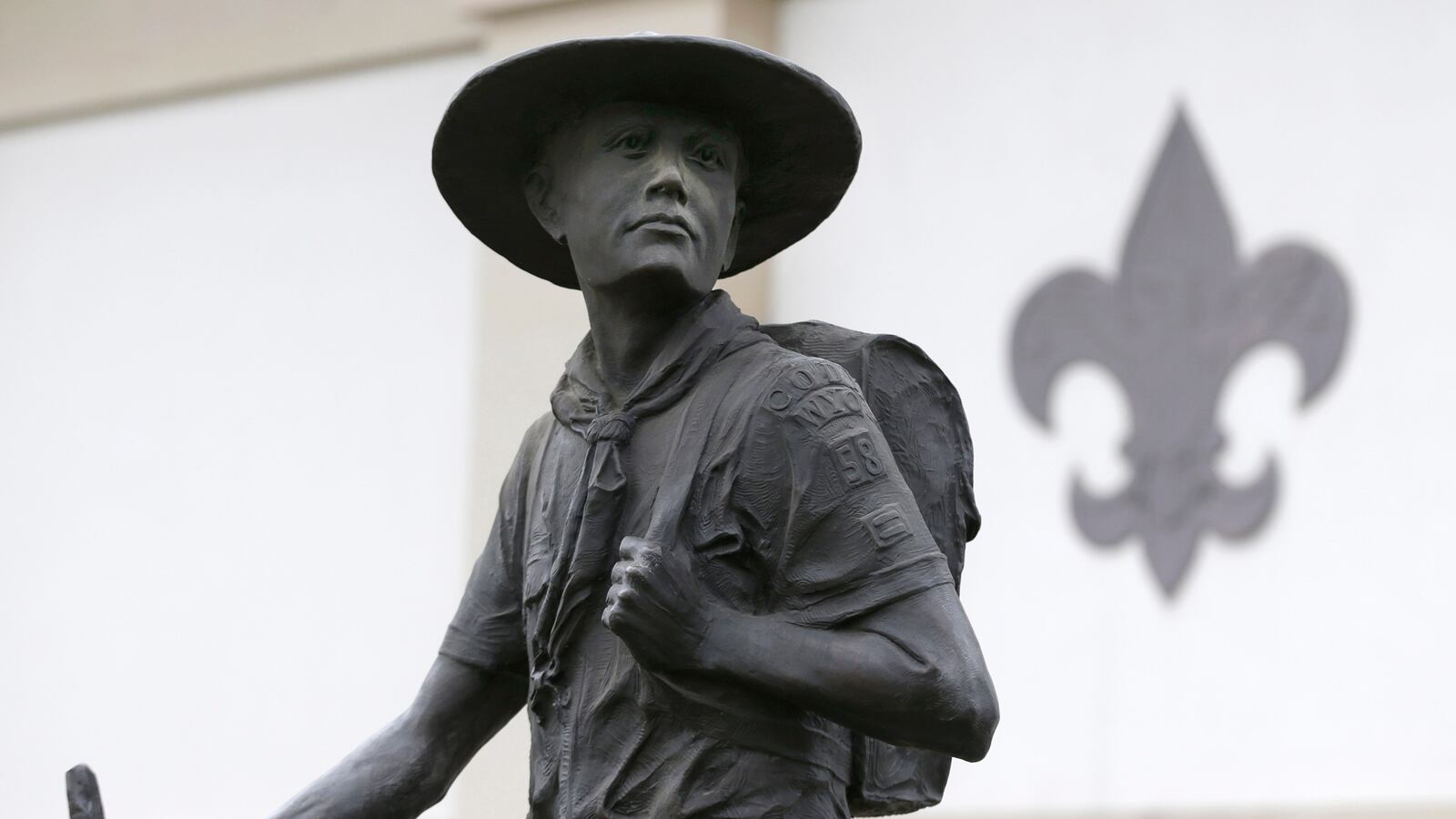
Soon, it may be possible to be a gay Boy Scout. In a reversal of its longstanding policy, the Boy Scouts of America is considering ending its institutional ban against gay members, a change that may alter the iconic group for good—and most would argue—for the better.
“The BSA had to make a decision,” said Zach Wahls of Scouts for Equality, a nonprofit organization that has been fighting against the ban for the last year. “Do they want to be relevant in the 21st century, or do they want to call it a day and pack it up?”
If the new rules pass, gay members wouldn’t automatically be barred from the organization, as they are now. Instead, the local sponsoring organizations would decide whether to accept them. “For example, a Mormon-sponsored Boy Scout troop might prevent gay members from participating, but a United Church of Christ–sponsored troop might allow gay members to participate,” Wahls said.
The Boy Scouts has come under considerable scrutiny, most recently for the organization’s treatment of a longtime Scout. High-school student Ryan Andresen of California, after attaining the requirements necessary to reach the highest rank, Eagle Scout, applied to receive the honor and was denied the recognition by the national board because he had come out. Andresen made news after his mother started a Change.org petition that garnered more than 450,000 signatures, and he was invited to appear on The Ellen DeGeneres Show. During his appearance, the talk-show host gave him $20,000 toward his college tuition.
Reached by email, Andresen’s father, Eric, said: “We were quite surprised—we wanted this to happen, but it’s coming sooner than we expected. Ryan hopes that this will help make sure that no other Scout has to go through what he’s been through.”
Perhaps, though, it’s not just a change of heart that’s inspired the Boy Scouts’ announcement. As they say, money talks.
In part due to the lobbying by groups like Wahls’s, the organization has been facing funding issues over its noninclusive stance. Last year, UPS, United Way, and Intel yanked funding over the anti-gay policies.
Though the Boy Scouts and its sister organization, the Girl Scouts of the USA, started around the same time and have a similar M.O., the Boy Scouts have long lagged on progressive issues. Since 1991, the Girl Scouts has had a neutral position on sexuality. In addition, its organizational structure is more decentralized than the Boy Scouts, which has a top-down hierarchy.
Last year, the Girl Scouts made headlines when a transgendered child in Denver, Bobby Montoya, was initially rejected by a local troop. Though three local troops disbanded in protest and another Girl Scout staged an unsuccessful and unpopular protest asking people not to buy the famous cookies, the Girl Scouts of Colorado issued a statement in support of Montoya: “If a child identifies as a girl and the child’s family presents her as a girl, Girl Scouts of Colorado welcomes her as a Girl Scout.”
“The Girl Scouts have been way out in front of this issue for a long time,” said Wahls. “The Girl Scouts is a somewhat smaller organization [and] a little more nimble—the BSA is kind of this large behemoth that takes time to get stuff done. But if you’re willing to put in the work, you can make it happen.”
(Wahls, incidentally, knows of what he speaks. He became a national figure when, two years, ago, he gave a moving speech in front of the Iowa House Judiciary Committee about his lesbian parents, hoping to defeat a proposed constitutional amendment to ban gay marriage in Iowa.)
Another fundamental difference between the Boy Scouts and the Girl Scouts is the Boy Scouts’ religious streak. While the Girl Scouts have affiliates and partners that range from Dove to Woman’s Day to the Peace Corps, the Boy Scouts has a religious coda baked into its mission—with organizations like the Catholic Church and the Church of Jesus Christ Latter-day Saints supplying up to 70 percent of its funding. In the 1970s, the BSA introduced a “Declaration of Religious Principles” for all new members to sign. It stated, in part: “The Boy Scouts of America maintain that no member can grow into the best kind of citizen without recognizing his obligation to God.”

So while you may soon be able to be a gay Boy Scout, you won’t likely be able to be an atheist Boy Scout any time soon. The Boy Scouts won a Supreme Court case in 1991 that upheld its right as a private organization to discriminate.
Annie Laurie Gaylor, co-president of the Freedom From Religion Foundation, the nation’s largest organization for nonbelievers, said she doesn’t expect a change in that policy in the foreseeable future and joked that it’d take a “secular coming” for the Boy Scouts to lose its religion. The decision to revoke one form of discrimination but not another is “a slap in the face to atheists,” she said.
While Gaylor said she was “thrilled” with the announcement about gay Scouts, she said the exclusion overlooks gay families who are not religious but want to be a part of the Boy Scouts and builds a whole new closet for them to hide in. “You’ve got to point out there are gay kids and gay families and gay Scout leaders who are nonbelievers, and they won’t be welcome, either. They will have to hide their nonreligion. The whole thing is hypocritical.”
Still, Wahls said he hopes the Boy Scouts will eventually come around on this angle, too. “The BSA has been, from its inception, a religious organization, so this would require a much more fundamental shift,” he said. “I think that eventually the BSA will drop its theist requirement.”
For the Boy Scouts to be truly open to all, it’s baby steps.
“This is really only half the battle. BSA is still going to allow discrimination [against gays] in those local units that believe it to be the right thing to do,” said Andresen. “The eventual outcome has to be the complete removal of any opportunity to discriminate in any form. This is a major victory, but we haven’t yet won the war.”






